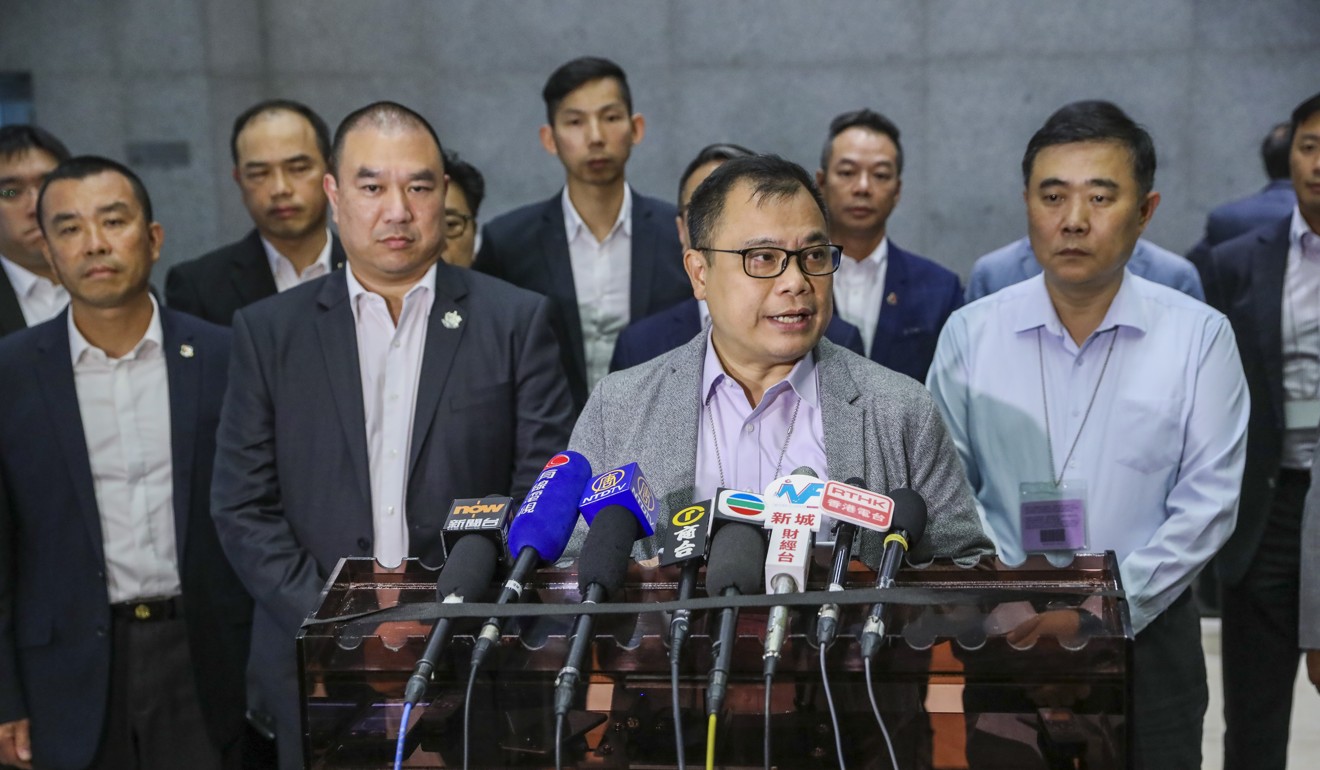
Hong Kong police ‘threatened, bullied and snubbed’ in public backlash against force’s handling of extradition bill protests
- Officers subjected to online abuse and public humiliation in revenge for force’s response to protests, says union representing rank-and-file
- Junior Police Officers’ Association accuses some of ‘blindly’ believing protesters’ version of events
Hong Kong police have been publicly scolded, rejected by other departments and given the cold shoulder in restaurants, as well as subjected to bullying and intimidation online, over the notorious extradition bill, a union has said.
In a letter to members of Junior Police Officers’ Association, obtained by the Post, its chairman Lam Chi-wai paid tribute to the force’s efforts in dealing with protesters, despite the risk of injury, but added they were now being smeared as part of a backlash.
“Since the June 12 riot, the police are facing huge pressure,” said Lam, adding even officers’ families were having to endure abuse.
“We are silently facing rioters’ pointing fingers, humiliation, attacks and their endless quest for revenge.”

Hundreds of thousands of people took to the streets over two consecutive Sundays to oppose the extradition bill and Chief Executive Carrie Lam Cheng Yuet-ngor’s decision on Saturday to only put the planned amendments to Fugitive Offenders Ordinance on hold.
They demanded she retracted the plan altogether and have denounced what they called the police’s heavy-handed approach to the protests last week.
Opponents rejected the bill, which would allow fugitives to be sent from Hong Kong to jurisdictions which do not already have extradition agreements with the city, such as mainland China. They fear the bill, once passed, would lead to unfair prosecution.
Thousands of Hongkongers who demonstrated in Melbourne, Sydney and Adelaide over the last two Sundays joined the outcry against police tactics.
During last week’s clashes, which the police called a riot, at least 80 people were hurt, including 22 officers.
Lam, of the association, bemoaned so many people “blindly” believing the version of events put forward by protesters, some of whom he said were throwing bricks at officers and attacking them with steel bars.
Did police use excessive force to deal with Hong Kong protests?
He added that rank-and-file members of the force, who are among the 170,000 civil servants in Hong Kong, were loyal to the government and politically neutral.
About 5,000 out of the total of 30,000 officers were mobilised to maintain order at Wednesday’sprotest.
“We lamented lies flying around that the police dispersed bare-handed students,” he said.
During Wednesday’s clashes in Admiralty, where the government headquarters and Legislative Council are located, the police fired 150 rounds of tear gas – nearly double the number directed at crowds on the first day of the Occupy demonstrations in 2014 – as well as about 20 beanbag rounds and several rounds of rubber bullets.

Union boss Lam helped arrange the tear gas on Wednesday, prompting many parents to come out for today’s march in condemnation of the police’s handling of mostly young protesters.
International student Jennifer Lau Cheuk-ying, 25, took part in the Adelaide march not only to demand Lam stepped down and apologised for the extradition bill drama, but to denounce the police’s treatment of demonstrators.
“We condemn the police for being exceptionally heavy-handed on protesters,” she told the Post.
Lau also demanded the police retract the classification of Wednesday’s protest as a riot.
Lam, of the association, could not be reached for further comment.

